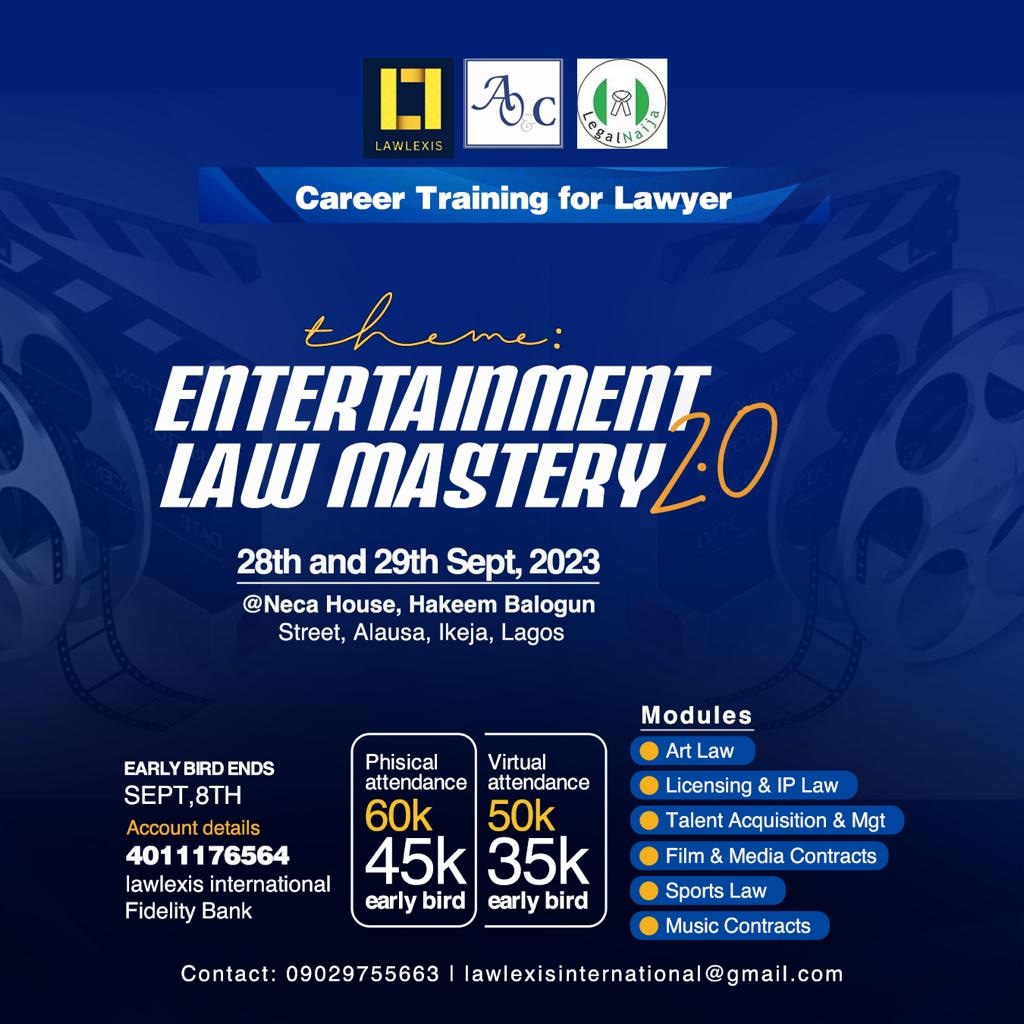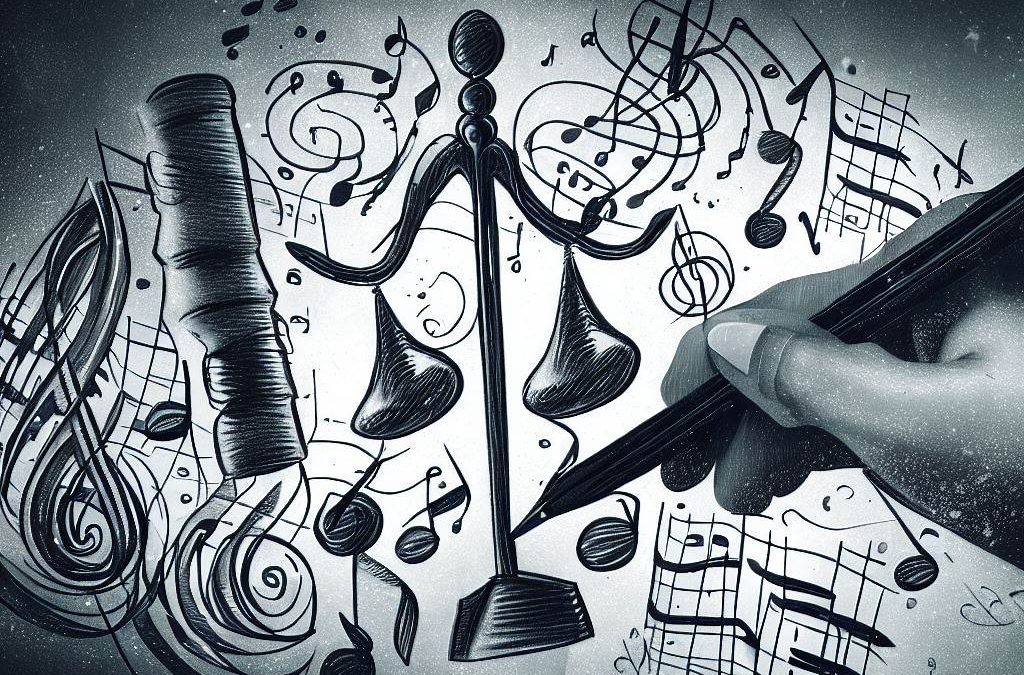
Nigerian music is a vibrant and diverse art form that has gained global recognition and popularity. Based on the study conducted by Statista in Nigeria, the music sector’s revenue grew from 26 million US dollars in 2014 to 34 million dollars in 2018. This figure, according to the research and projection by Statista, is expected to grow to 44 million dollars by 2023.
However, behind the scenes, there are many legal challenges that musicians face, such as:
• Copyright infringement and piracy: Unauthorized reproduction and distribution of music deprives artists of their rightful income and discourages creativity and investment.
• Limited access to funding and infrastructure: Many musicians struggle to finance their projects and lack adequate facilities and equipment for recording, production, and marketing.
• Limited royalty collection and distribution systems: Many musicians do not receive proper compensation for their work due to inefficient and opaque mechanisms for collecting and distributing royalties.
• Limited international exposure and market penetration: Many musicians face barriers to accessing global platforms and audiences due to lack of international collaborations, promotional efforts, and partnerships.
• Talent development and education: Many musicians lack the skills and knowledge to navigate the complex legal and business aspects of the music industry.
These challenges require legal expertise and guidance to protect the rights and interests of musicians and to foster the growth and development of the music industry. However, there is a shortage of lawyers who specialize in entertainment law in Nigeria. This means that many musicians do not have access to legal representation or advice when they need it.
This is where our Entertainment Law Mastery class comes in. Our class is designed to provide lawyers with the fundamental knowledge of entertainment law necessary to work with legal issues in the music industry. Our class covers topics such as:
• The business of entertainment: The structure, operation, and regulation of the entertainment industry in Nigeria and globally.
• Entertainment contracts: The types, terms, and negotiation of contracts in the entertainment industry, such as recording, publishing, licensing, distribution, management, and performance agreements.
• Entertainment guilds and organizations: The roles, functions, and rules of various entities that represent or regulate the interests of musicians and other entertainment professionals, such as COSON, PMAN, NCC, etc.
• Entertainment intellectual property: The protection, enforcement, and exploitation of intellectual property rights in the entertainment industry, such as copyright, trademark, patent, trade secret, etc.
• Entertainment compliance: The compliance with federal and state laws and regulations that affect the entertainment industry, such as censorship, taxation, labor, consumer protection, etc.
By taking our Entertainment Law Mastery class, you will:
• Learn advanced legal terminology and concepts related to entertainment law.
• Obtain practical knowledge and skills for handling legal issues in the music industry.
• Strengthen your critical thinking and problem-solving abilities for dealing with complex legal scenarios.
• Review and draft legal agreements for various entertainment transactions.
• Analyze legal cases and precedents relevant to entertainment law.
• Network with other lawyers and professionals in the entertainment industry.
Our Entertainment Law Mastery class is ideal for lawyers who want to:
• Expand their practice areas or specialize in entertainment law.
• Enhance their career prospects or opportunities in the entertainment industry.
• Learn from experienced and qualified instructors who are experts in entertainment law.
If you are interested in enrolling in our Entertainment Law Mastery class, please read more here https://legalnaija.com/career-training-for-lawyers-entertainment-law-mastery-2-0/adedunmade/

